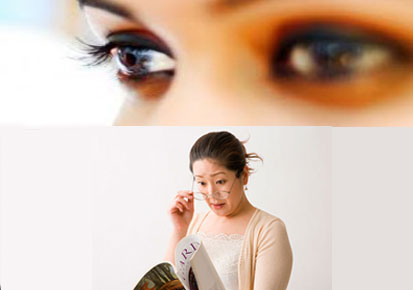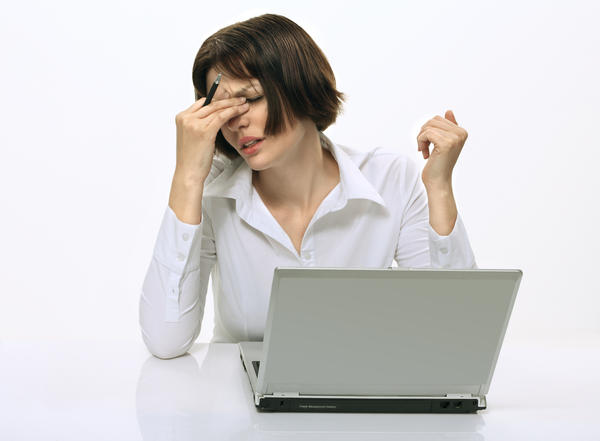It’s estimated that for the huge number of people in the world wearing some sort of corrective lenses, there are millions more who go on with their daily lives without knowing that their vision is not perfect. In fact, there are so many people who don’t know that something is wrong with their vision, simply because they’ve gotten used to their less than optimal eyesight. This is also because a lot of us ignore getting a regular eye exam. We’ve also covered how often you should get your eyes checked, if you’re wondering.

However, even if you don’t get an eye exam done, there are a couple of signs that could tell you that it’s time to don a pair of glasses. So if you’re experiencing one or more of the following symptoms, you better get to your optometrist pronto, so that the problems don’t get worse. Worse, some of these symptoms may result in difficulties while driving, and driving just isn’t something you can compromise on. A driver not 100% alert or able to perceive his or her surroundings properly is a huge threat no matter what way you see it, so don’t be that person! Here’s the 10 signs you may need spectacles:
- You’re not able to see objects at a distance, or read text that is far away. This could mean that you have myopia, commonly known as nearsightedness.
- You’re not able to see objects near you clearly, or read text close to your eyes. This could mean that you have hypermetropia, commonly known as farsightedness.
- You’re not able to see both far away and close by objects clearly. This condition is also known as astigmatism.
- You have frequent headaches, no matter what you’re doing or where you are. Your headaches get worse when you try to concentrate on a particular object or try to read small text.

- At night, you find it difficult to drive, read or see objects around you.
- You frequently find that your eyes tear up or feel fatigued, no matter how much or how less you sleep.
- At a certain distance, you see doubles of objects or people.
- When moving from light to dark or dark to light surroundings, you feel slightly dazed and take a longer time to adjust than others do.
- You find it difficult to focus on objects and the surroundings seem to ‘move’.
- You see halos around lights and need to squint sometimes.

And so, if you find yourself facing any of these problems, it’s almost a sure shot sign that you need spectacles. If it’s a minor problem and the corrective lenses aren’t too high powered, you may be able to use them only occasionally, but if they are, you might need to wear them constantly. Adults will also have the option of going for contact lenses in that case, but then the issue of ease of use versus practicality will come in, when comparing spectacles and contact lenses.
As an adult or teenager you can probably understand these signs, but younger children won’t even know that there’s something wrong with their vision. In such cases, it’s up to parents or guardians to closely monitor them and see if they face difficulty with daily tasks, or if they exhibit certain signs of visual discomfort. Some of these signs include:
- Squinting while reading or watching television.
- Difficulty following fast moving objects, like in sports.
- Excessive redness or tearing.
- Constantly rubbing eyes.
- Tilting the head to see objects or people clearly.
- Sitting close to the television or keeping books very close to the eyes.
- Sensitivity to bright lights.
- Losing his/her place while reading, i.e. not able to follow lines in a book.
- Using a finger to point to words, although this can also be attributed to the reader being new.

So if you notice any of these signs in a child, they may need spectacles as well. If there’s been a family history of vision defects, it’s always a wise choice to get the child’s eyes checked early on and frequently, so that problems are rectified as soon as they manifest. The same, of course, applies to adults as well. Even if there’s been no history of vision defects in the family, you should get your eyes checked at regular intervals. Vision tends to weaken after you cross 40, so that’s definitely a time you’ll need to consider getting glasses. Meanwhile, take care of your eyes!
Image Credits: kalaman-nas.com, theprospect.ne, valuvision.com, emcfresno.com
